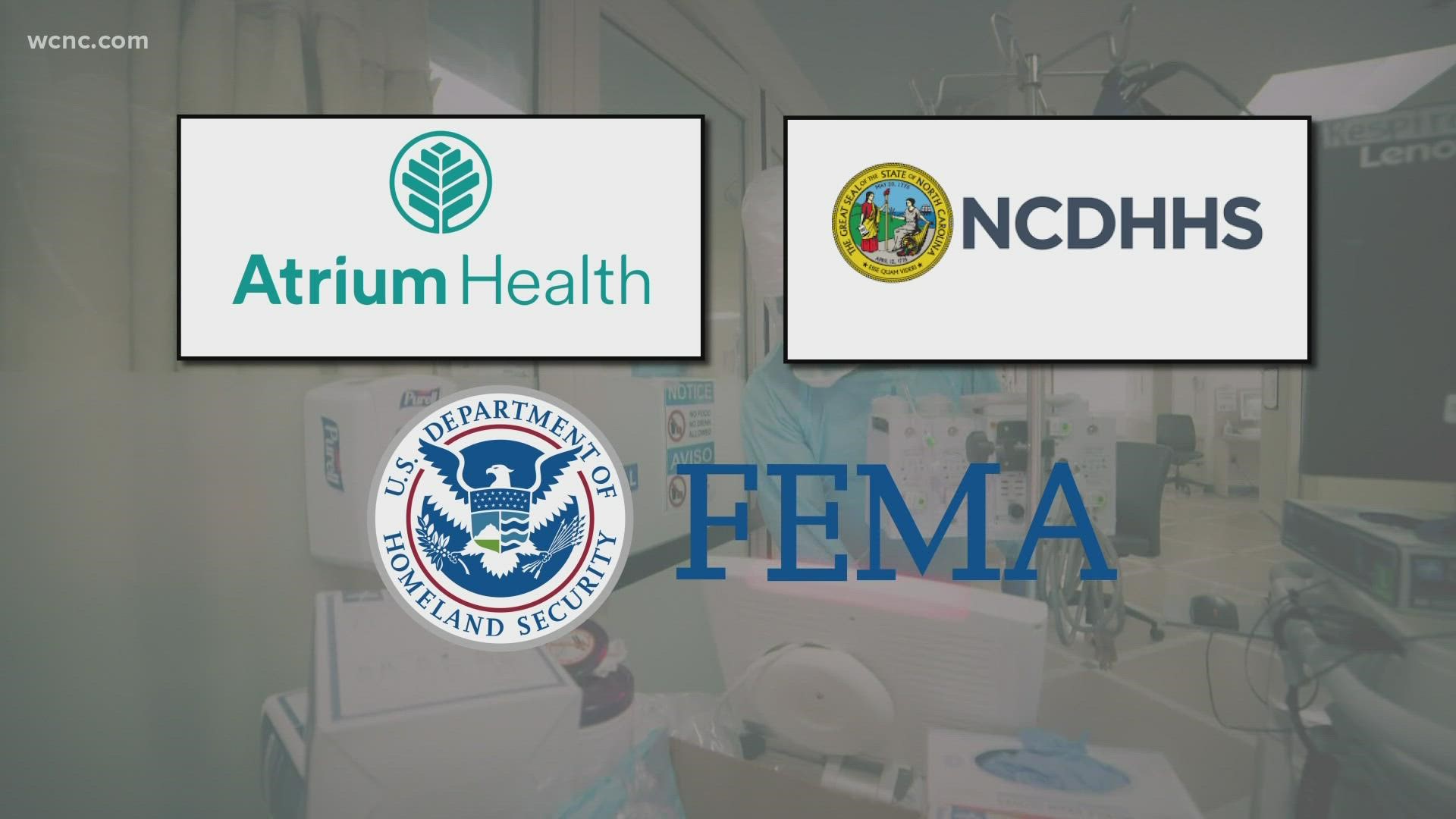CHARLOTTE, N.C. — The highly contagious omicron variant of COVID-19 is sending record numbers of people to hospitals, straining hospital capacity, North Carolina health officials reported Friday.
As hospitals statewide continue to take steps to protect their ability to provide patient care in the face of nationwide COVID-19 staffing shortages, the North Carolina Department of Health and Human Services (NCDHHS) is requesting federal support for the Charlotte region.
"We continue to monitor hospital capacity and staffing needs and have requested resources, including additional nurses from FEMA," Gov. Roy Cooper said in a statement. "We appreciate previous federal support and will keep working to make sure that people get the medical care they need."
Data from NCDHHS showed that 1,136 COVID-19 patients were hospitalized in the Charlotte area with 174 adults in ICU due to the virus. WCNC Charlotte's Vanessa Ruffes learned that 9% of staffed ICU beds in the Charlotte area remain available, compared to 14% statewide, and that 18% of staffed inpatient beds are available, which matches the percentage statewide.
According to some doctors, record-breaking case counts and percent positivity rates can help get immunity to a place where the pandemic becomes more manageable. But Dr. Christopher Woods with Duke University School of Medicine believes there is a short-term price to pay.
"We will certainly bear the pain of this surge to some degree with hospitalizations and deaths, despite the lower case fatality rate," Woods said.
The state is acting in partnership with Atrium Health, North Carolina’s largest health provider, with a request to FEMA and the Assistant Secretary for Preparedness and Response for staffing support.
Atrium Health reports it has employed numerous strategies to stretch its capacity, including redeploying staff from urgent care and outpatient centers; limiting non-urgent procedures; closing specialty centers; and using additional state-provided flexibilities, as outlined in a letter NCDHHS Secretary Kody H. Kinsley sent to hospitals last week. Despite these actions, the health system is currently above 95% capacity.
Experts are pushing more people to get vaccinated to prevent this from happening again from another variant.
"The ICU docs and nurses and first-responders have been our true heroes in all of this," Woods said. "Their capacity to continue to respond to surges is going to no doubt be diminished. We need to replete that workforce, particularly during surges so we can tolerate those.”
"The vast majority of people hospitalized with COVID-19 are unvaccinated," Kinsley said. "While we will continue to pull every lever we can to safeguard hospital care, each North Carolinian can do their part by staying up-to-date with COVID-19 vaccinations and wearing a well-fitting mask when around other people as we weather this surge."
RELATED: NC health leaders say these communities are once again seeing higher COVID impacts than others
WCNC Charlotte is part of seven major media companies and other local institutions reporting on and engaging the community around the problems and solutions as they relate to the COVID-19 pandemic. It is a project of the Charlotte Journalism Collaborative, which is supported by the Local Media Project, an initiative launched by the Solutions Journalism Network with support from the Knight Foundation to strengthen and reinvigorate local media ecosystems. See all of our reporting at charlottejournalism.org.

